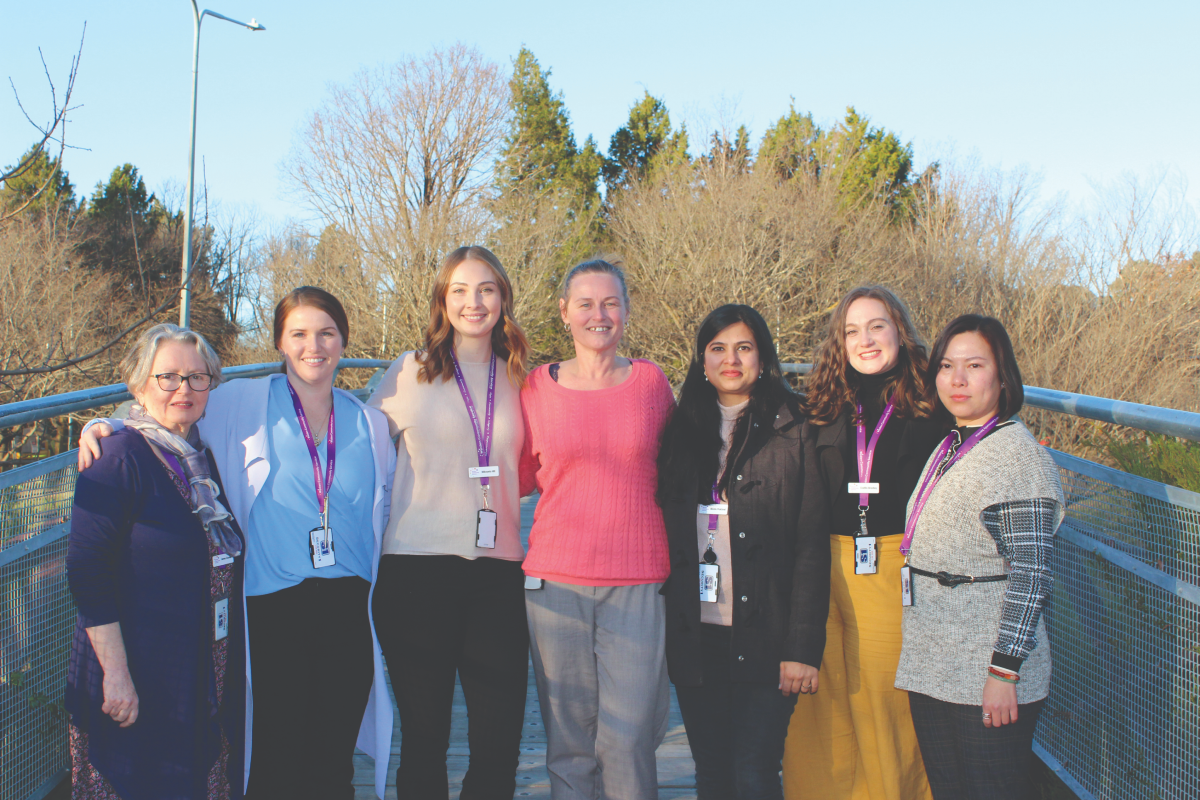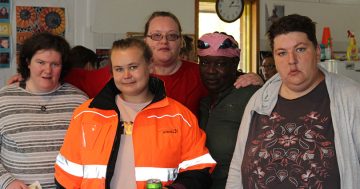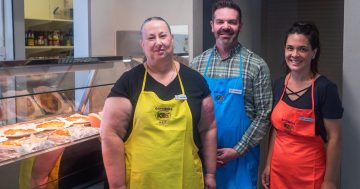
Woden Community Service senior manager Leanne Heald (centre) with the rest of the NDIS team. Photo: Woden Community Service.
The funding of NDIS services from the perspective of participants and providers is currently rightfully attracting much attention in the media.
The 2022-23 NDIS Annual Pricing Review has come at a crucial point for NDIS providers of support coordination, those who manage the allocation of funds to assist NDIS participants navigate the services they need.
The hourly reimbursement rate to providers for support coordination has not increased for three years. However, those providers have had to pay award increases for employees, while absorbing the growing costs of service compliance, staff training and other infrastructure expenses.
It is difficult to operate viable services with these challenges.
In recent years, Woden Community Service (WCS) has seen many service providers debate whether they can remain financially viable or withdraw from the NDIS entirely. WCS has provided support coordination services to Canberrans for eight years and has had to cross-subsidise NDIS services to remain open to the community, particularly people with a psychosocial disability.
The NDIS has consistently lowered the amount of funds available to participants in their plans for support coordination. This has created unsustainable worker caseloads, despite an increasing complexity of participant needs, with work being done that cannot be billed to the NDIS.
The increasingly complex work has also made it necessary to have more qualified and experienced staff, which has increased labour costs.
Echoing Minister Bill Shorten’s recent comment at the Press Club, WCS has often seen mainstream services retreat from a participant’s formal support team when an NDIS plan has been implemented. This inevitably leaves the support coordinator to carry the load while not being funded to do so. This is particularly the case with people who have a psychosocial disability.
Participants tell us that ongoing support coordination funding helps them to sustain their wellbeing and connection to services. However, the NDIS often views this role as non-essential support and will often remove it over time. Workers are then left to do unfunded advocacy for their participants.
Like other NDIS providers, WCS is committed to our NDIS participants and the ongoing provision of a support coordination service. An increase in the hourly rate and allocated hours in participants’ plans is essential to provide adequate support.
We have to prevent agencies from having to decide whether to continue to provide a service that may well put them out of business. The people we are trying to assist will be the ones who have the most to lose, which was never the initial intention of the NDIS.
Leanne Heald is an NDIS Manager at Woden Community Service





















